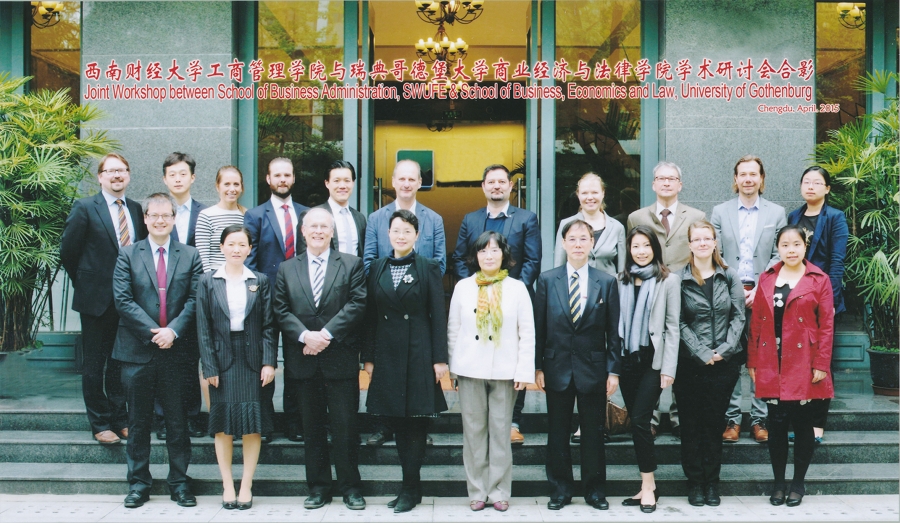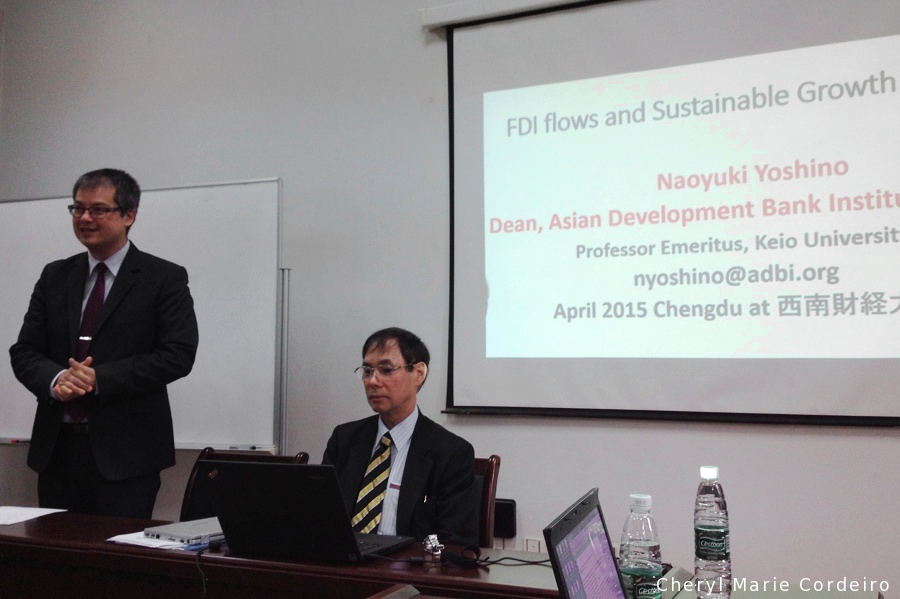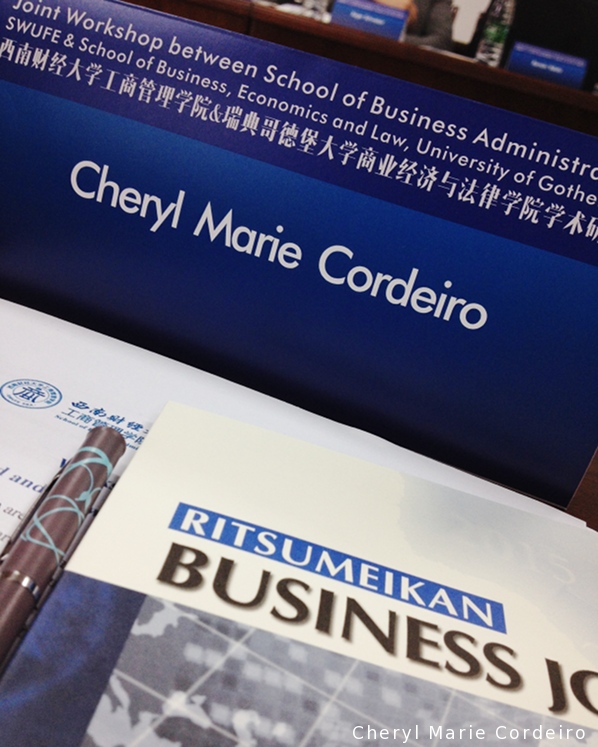Faculty members of the Centre for International Business Studies (CIBS) at the School of Business, Economics and Law, University of Gothenburg, together with faculty members of the Southwestern University of Finance and Economics (SWUFE), in Chengdu, China, participating in a joint workshop entitled, ”China’s Inward and Outward Foreign Direct Investments”.
Text & Photo © CM Cordeiro, Sweden 2015
10 April 2015 was a full day programme of a joint workshop held between CIBS and SWUFE on SWUFE campus grounds in Chengdu, China. The day had two sessions. The theme to the morning session was to exchange ideas on the macro picture and experiences of Chinese outward FDI, and foreign FDI in China. The theme of the afternoon session was to focus on Volvo Car Corporation (VCC) in the five years after its acquisition by the Zhejiang Geely Group (Geely).
Many perspectives were exchanged, of which what caught my own interest were those pertaining to the field of language in international business. A concept raised and discussed by SWUFE faculty members was the evolving concept of guanxi in China, and how both negotiations and transactions in businesses are affected by individual networks.
Where once guanxi seemed the most important factor in conducting trade deals, the age of the internet and social media has tipped the balance towards guanxi as defined in the Chinese context, to something that carries negative connotation with myopia of relations. Rather, to be able to do business such as sales over the internet for example, without being too dependent upon one’s own guanxi network, is seen as desirable and the more successful. But even as that might seem the current connotation of guanxi, language, as relationships, evolve, which then gives scholars interested in the study of guanxi an interesting task in terms of a longitudinal aspect as to the study of networking and developing relationships of businesses within the Chinese context.
Professor Richard Nakamura of CIBS, introduces keynote speaker, Professor Naoyuki Yoshino, Dean of the Asian Development Bank Institute (ADBI) and Professor Emeritus at Keio University, Tokyo, Japan.
Fika paus treats.
In whatever evolving form that guanxi takes, Chinese hospitality seldom fails to put warmth in the heart, for which we were grateful.



